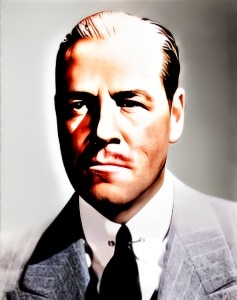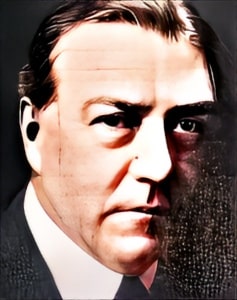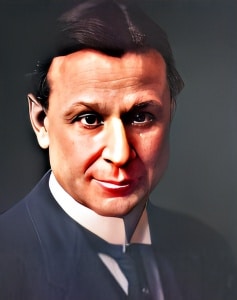 Jack Holt, a distinguished figure in the early days of Hollywood, carved a significant niche for himself as a versatile actor known for his strong screen presence and memorable performances.
Jack Holt, a distinguished figure in the early days of Hollywood, carved a significant niche for himself as a versatile actor known for his strong screen presence and memorable performances.
Born Charles John Holt on May 31, 1888, in New York City, Holt embarked on a career that spanned the silent era to the advent of sound in cinema.
Holt’s early life was marked by a family already connected to the entertainment industry. His father, Jack Holt Sr., was a well-known stage actor, laying the foundation for young Jack’s future in show business. As a teenager, Holt worked as a call boy at the renowned Orpheum Theatre, gaining valuable insights into the world of theater.
His entry into the film industry was a natural progression, and by 1914, Holt had established himself as a reliable actor in silent films. His tall stature, rugged demeanor, and distinctive voice set him apart, making him a sought-after leading man. Holt’s early roles included a mix of Westerns, dramas, and adventure films.
One of Holt’s notable collaborations was with director Maurice Tourneur in the film “ Victory” (1919), an adaptation of Joseph Conrad’s novel. The film showcased Holt’s ability to convey complex emotions without the aid of spoken dialogue, highlighting his skill in silent film storytelling.
As the silent era transitioned to sound, Holt successfully made the leap, showcasing his adaptability as an actor. His deep voice, once a distinctive feature in silent films, became an asset in the new era of talking pictures. Holt’s versatility allowed him to tackle a variety of genres, including Westerns, war films, and dramas.
Holt’s career reached new heights in the 1930s, and he became associated with Paramount Pictures. He starred in a string of successful films, including “Flight” (1929) and “Waterloo Bridge” (1931). His portrayal of a tough but compassionate military officer in the World War I drama “Hell’s Angels” (1930) remains one of his most memorable roles.
The 1940s saw Holt continue his prolific career with appearances in war-themed films, reflecting the times. Notable among these was his role in “The Fleet’s In” (1942), a musical comedy set against the backdrop of Navy life during World War II.
Beyond his on-screen achievements, Holt was recognized for his commitment to his craft and his contributions to the film industry. He was a founding member of the Screen Actors Guild (SAG), an organization dedicated to protecting the rights of actors in the industry.
Jack Holt’s career spanned over four decades, and his filmography includes over 180 credits. His legacy endures not only through the films he starred in but also through his influence on subsequent generations of actors. Holt passed away on January 18, 1951, leaving behind a rich cinematic legacy that continues to be appreciated by film enthusiasts.
Loading live eBay listings...




